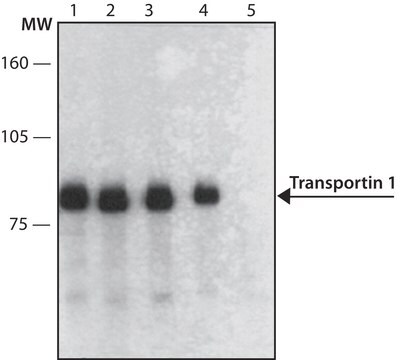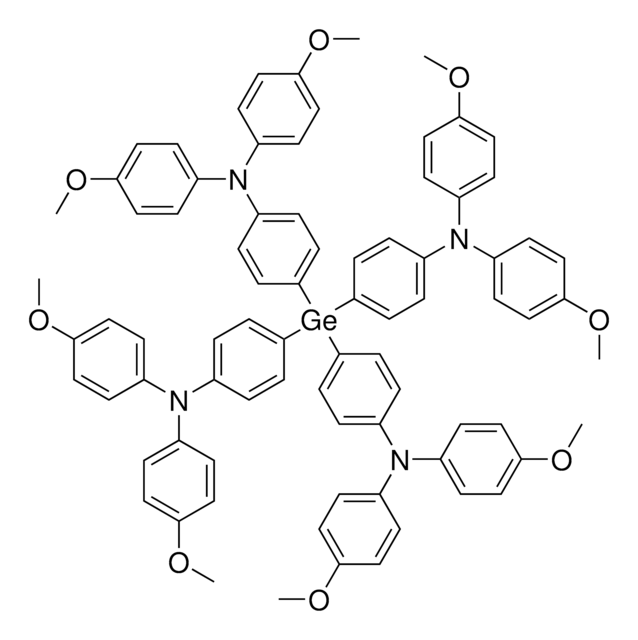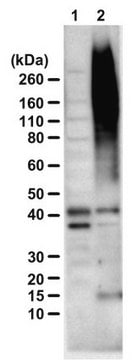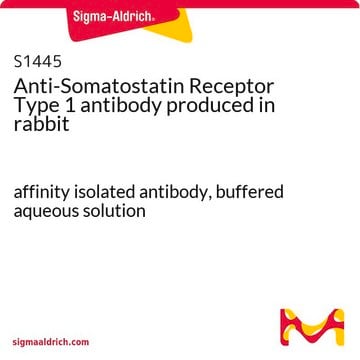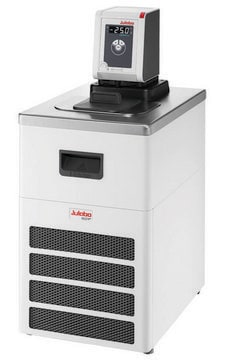AB1557
Anti-NMDAR2B Antibody, pain
serum, Chemicon®
Synonym(s):
N-methyl D-aspartate Receptor Subtype 2B, NR2B
About This Item
Recommended Products
biological source
rabbit
Quality Level
antibody form
serum
antibody product type
primary antibodies
clone
polyclonal
species reactivity
mouse, human, rat
manufacturer/tradename
Chemicon®
technique(s)
immunoprecipitation (IP): suitable
western blot: suitable
suitability
not suitable for immunohistochemistry
NCBI accession no.
UniProt accession no.
shipped in
dry ice
target post-translational modification
unmodified
Gene Information
human ... GRIN2B(2904)
Specificity
Immunogen
Application
Neuroscience
Neurotransmitters & Receptors
Immunoprecipitation using solubilized hippocampal slices. 3 μL will (under appropriate conditions) quantitatively immunoprecipitate all NMDAR2B in 200 μg of rat brain lysate.
Not suggested for use in immunohistochemistry.
Note: Above dilutions are with 35S-protein A; with ECL dilutions may need to be considerably higher to obtain specific immunolabeling.
Optimal working dilutions must be determined by the end user.
Target description
Physical form
Storage and Stability
Analysis Note
Brain tissue, Rat Purkinje cell dendrites, rat hippocampus lysate, HEK 293 cells expressing NR2B
Other Notes
Legal Information
Disclaimer
Not finding the right product?
Try our Product Selector Tool.
recommended
Storage Class Code
10 - Combustible liquids
WGK
WGK 1
Flash Point(F)
Not applicable
Flash Point(C)
Not applicable
Certificates of Analysis (COA)
Search for Certificates of Analysis (COA) by entering the products Lot/Batch Number. Lot and Batch Numbers can be found on a product’s label following the words ‘Lot’ or ‘Batch’.
Already Own This Product?
Find documentation for the products that you have recently purchased in the Document Library.
Our team of scientists has experience in all areas of research including Life Science, Material Science, Chemical Synthesis, Chromatography, Analytical and many others.
Contact Technical Service